Riding the Northern Explorer: This is how to run a railroad
What a way to learn about New Zealand
So I am in New Zealand,writing this in the last few hours on the Northern explorer, a train running from Auckland to Wellington, where I will be speaking to a Passivhaus conference. I am not doing it for the carbon savings, which would be silly given that I flew all the way from Toronto to Auckland, but because I thought it would be a great way to get a sense of the country on my first full day here. The world authority on trains, the Man in Seat 61, describes it:
“It's an epic 681 kilometre (423 mile) journey across the interior of the North Island, through every kind of scenery there is, from coastline to volcanoes to mountains, lush green farmland to thick New Zealand bush. It takes you the length of the historic North Island Main Trunk Railway, started in 1885 and completed in 1908, over feats of engineering such the Raurimu Spiral, Turangarere Horseshoe and Makatote Viaduct. It's one of the world's great railway journeys and one of my favourites, far more historically and economically significant than the branch line used by the TranzAlpine train on the South Island.”
Local train buff and regular reader Bob and spouse Cathy (check out his fascinating Substack) question whether it’s better than the TranzAlpine, but I took it anyway. It’s a remarkable train; when I arrived at the platform I thought it looked like a toy compared to the big VIA engines and rolling stock I was used to in Canada. That’s because New Zealand chose a very narrow gauge for their tracks, only 1.067m compared to the “standard” of 1.435m. The carriages are consequently narrower as well.
But they are beautiful and comfortable carriages, designed by Kiwi Rail engineers and built in Dunedin, with air bag suspension, retro wood detailing, comfortable seats with USB-A power (no line voltage power or USC-C, bring the right cables!) and with TV monitors with a map hanging from the ceiling. When you hear a ping, it means you should put on your headphones and listen to the wonderful commentary, tied by GPS to the passing scene.
It took 34 years to build this line, 6 times as long as it took to build Canada’s transcontinental line, which frankly covered worse terrain in the Rocky Mountains. I suppose it was a matter of political will; in Canada, the rail line was a moon shot that was needed to tie the country together, whereas New Zealand was mostly developed by the British settlers in coastal communities connected by ship. And then there were the Māori, who ruled the interior of the island. The interior was also almost inpenetrable rainforest, so wet that roads were muddy bogs and rail construction slow and tedious. It was a commercial venture; this rail line was built to extract the coal and timber from the interior and import settlers that would displace the Māori.
In many ways I found it profoundly depressing; the forests were cleared away with saws and fire, so that now you have mainly rolling hills covered with cows and sheep as far as you can see. The rainforest that might have been a big part of the lungs of the planet were cleared to produce meat and dairy (25 million sheep and 6 million cows) and methane; it’s basically 150 years of climate disaster.
For a Canadian who has been through the Rockies, the engineering is also less impressive. The famous Raumiru spiral, where the train loops back and forth to reduce the grade, may be exciting for rail and engineering fans but isn’t that dramatic to acutally ride. This ain’t the Rogers Pass.
But as a Canadian who has witnessed the deterioration of our passenger rail system, the experience is very impressive.
The tracks are well-maintained, and the air bag suspension reduces vibration so it is a smoother ride than you get in Canada. There is a wonderful open outdoor viewing car at the front of the train where I spent a lot of time taking my usual terrible photos.
The staff are incredibly charming, and deliver your order to your seat on a silver tray. Reader Bob recommended that I order “railway pie” but this was not in stock; I had a beef pie instead and it was delicious. Staff come through the car regularly to pick up waste so the car is always clean.
It’s eleven hours from Auckland to Welligton; some might wonder why one would give up a day of your trip to spend on a train. But I believe that I really got a sense of the country on my first full day here, going from coast to highlands to volcanoes to the dramatic ride along the ocean into Wellington.
I saw more sheep and cows than I could imagine existed. I passed abandoned mining and lumbering communities, learned about battles between the Māori and the settlers, and believe I got a sense of what this country is. I loved every minute of it.
I thought I would spend most of the time practicing and refining my speech, but I never opened my computer, glued to the window or hanging out on the outdoor car. It was a glorious ride.
We could do this in Canada or the USA- sure, the distances are greater, but that just means more time to learn about and connect with the country. I was surprised that only a small percentage of passengers used the provided headphones and listened to the travelogue; it was brilliant, covering history, engineering, red meat for the train buffs, geology, and botany. Bring whoever produced this to Canada- it made the trip fly by.



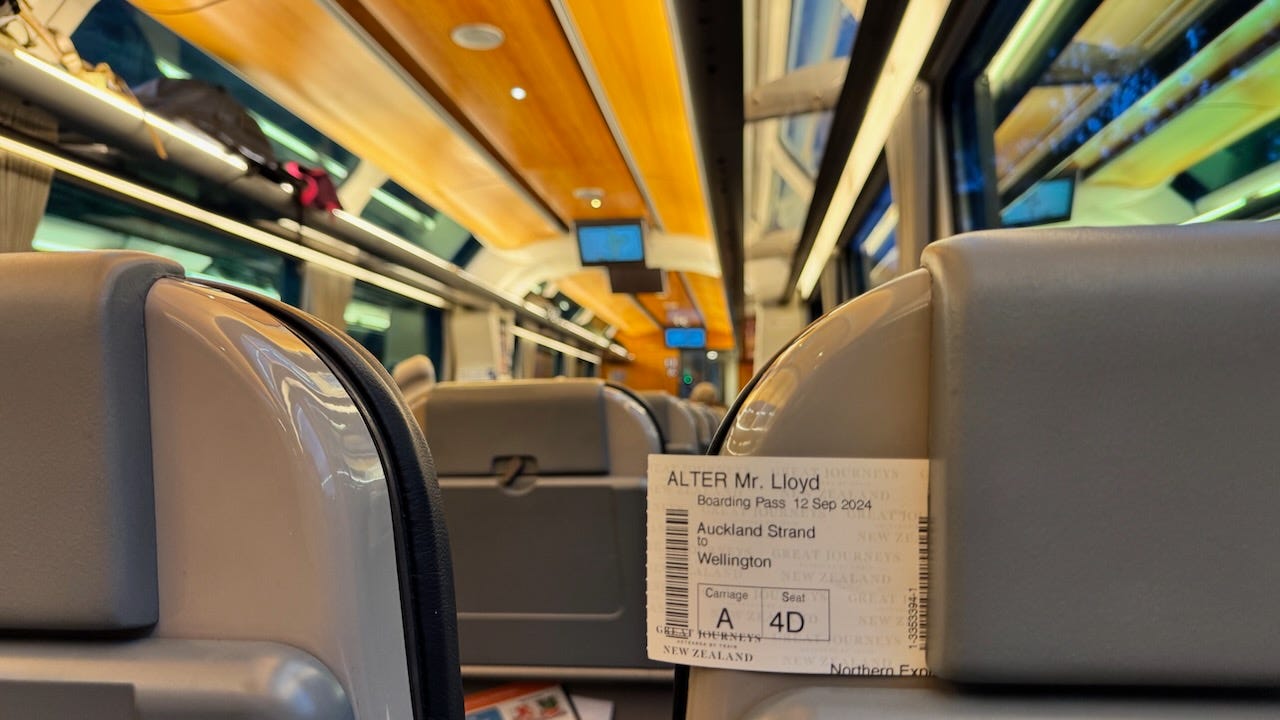

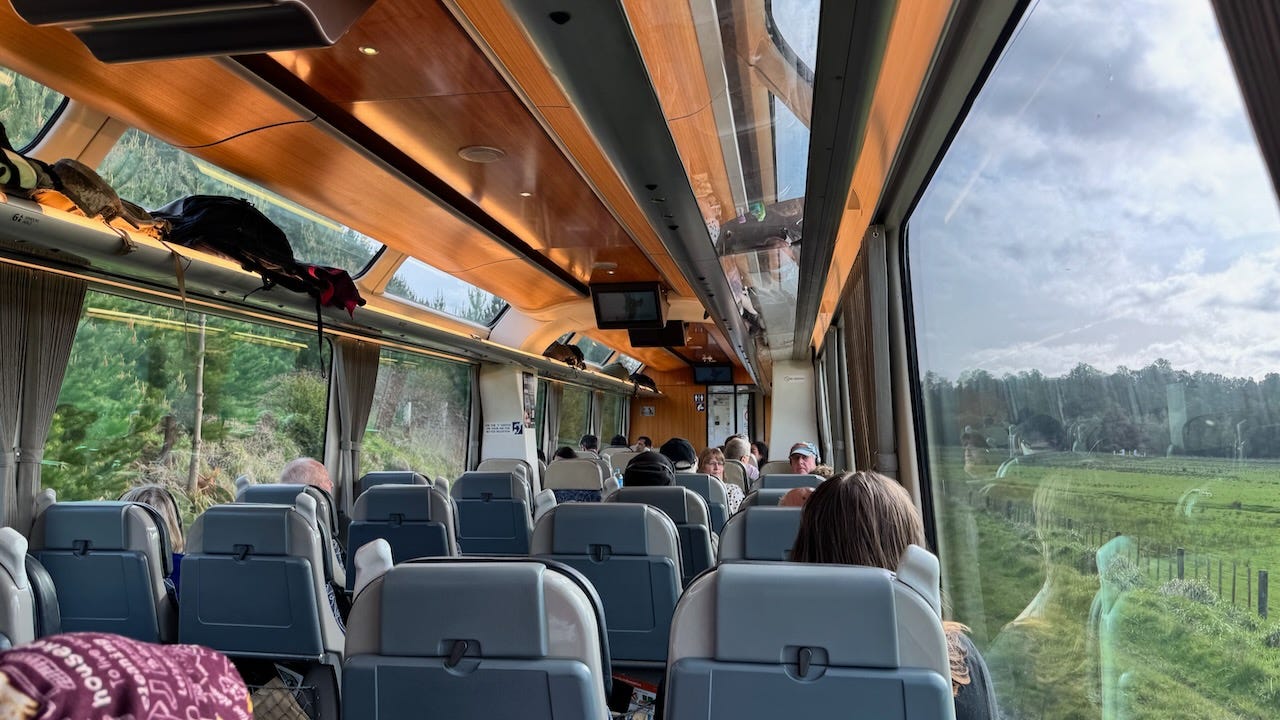
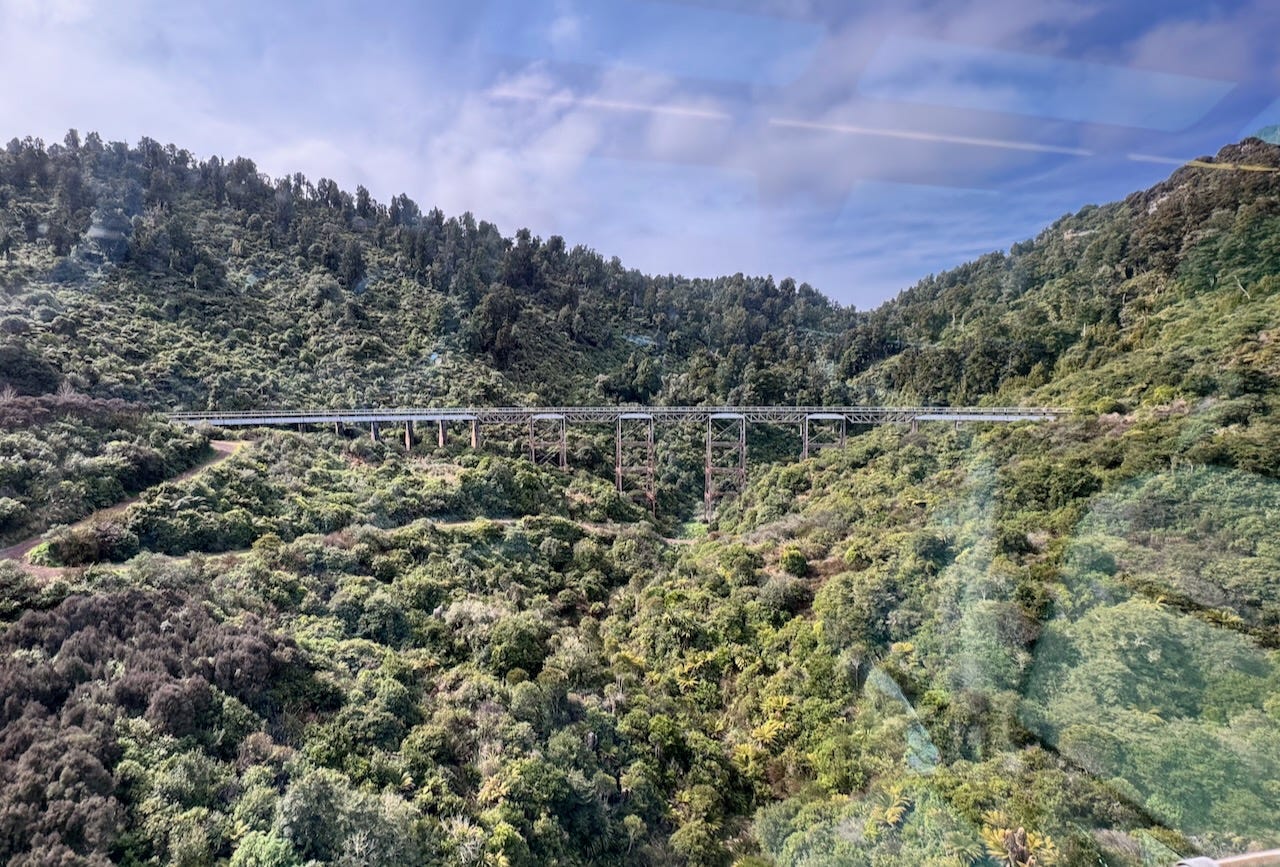

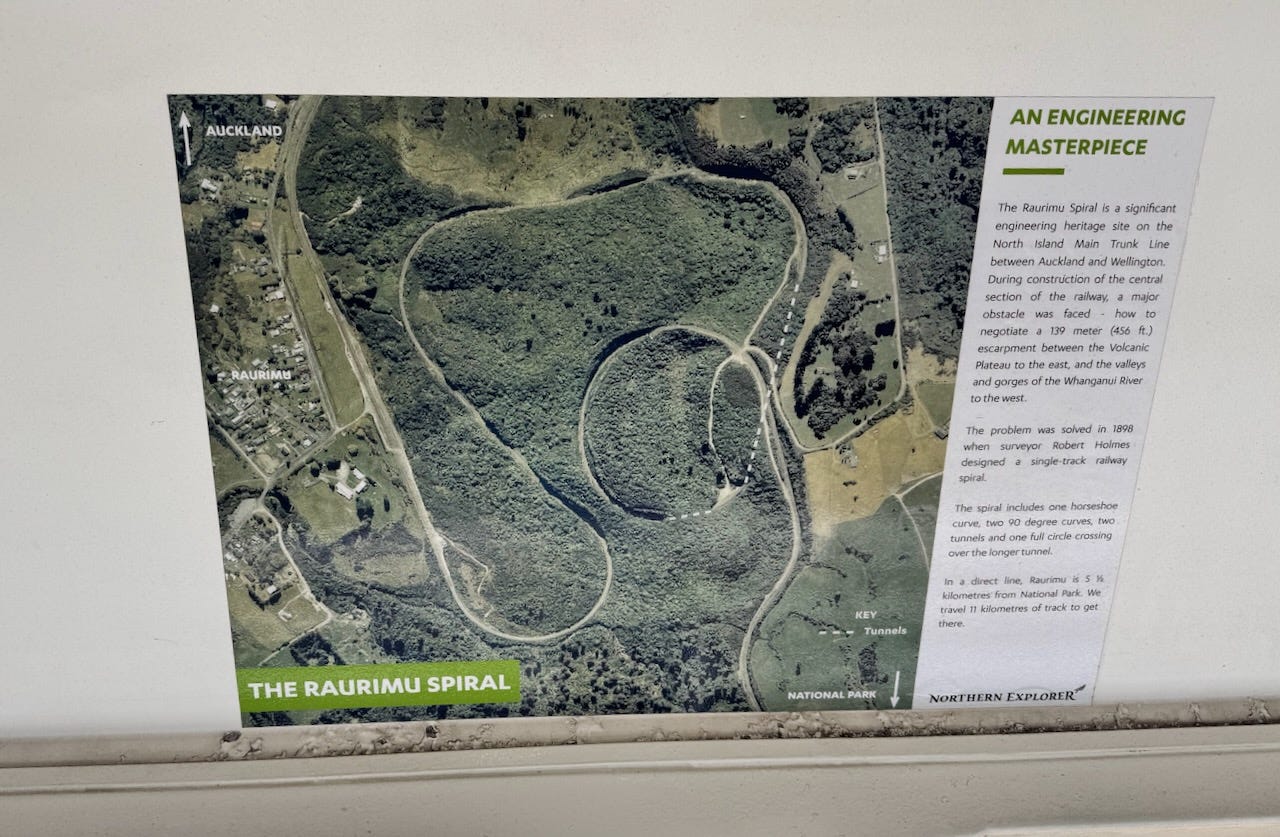
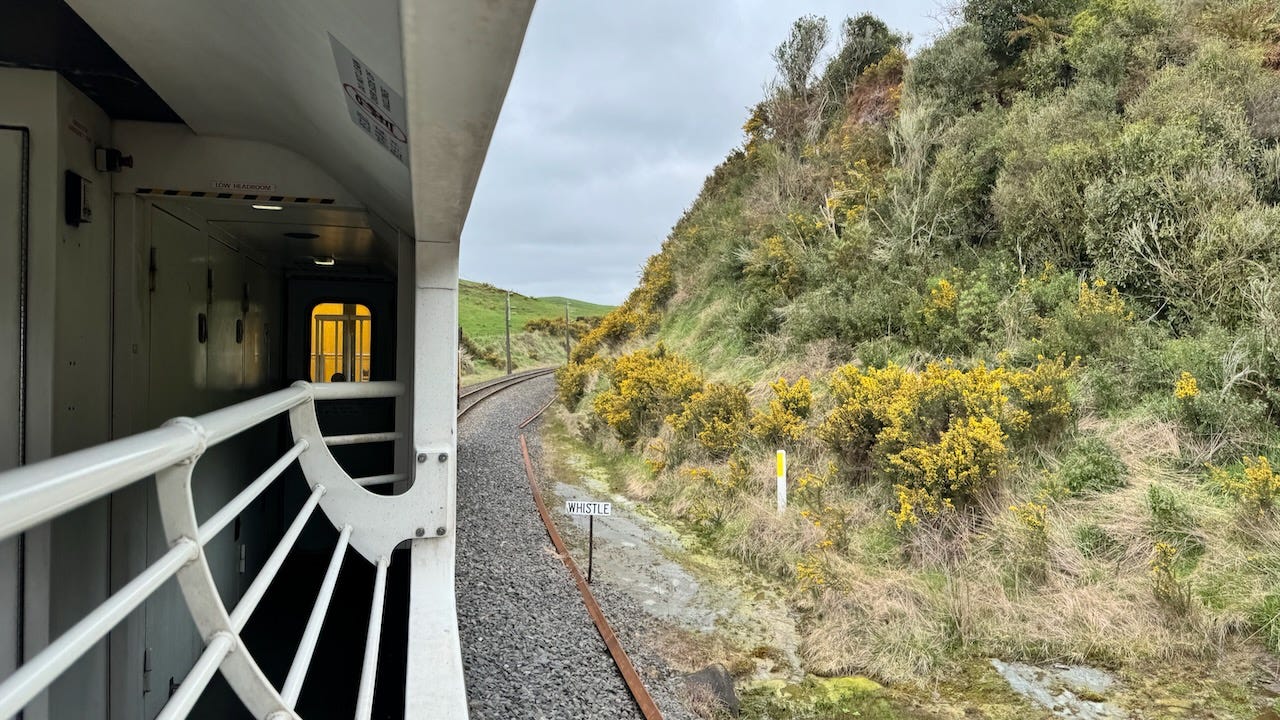
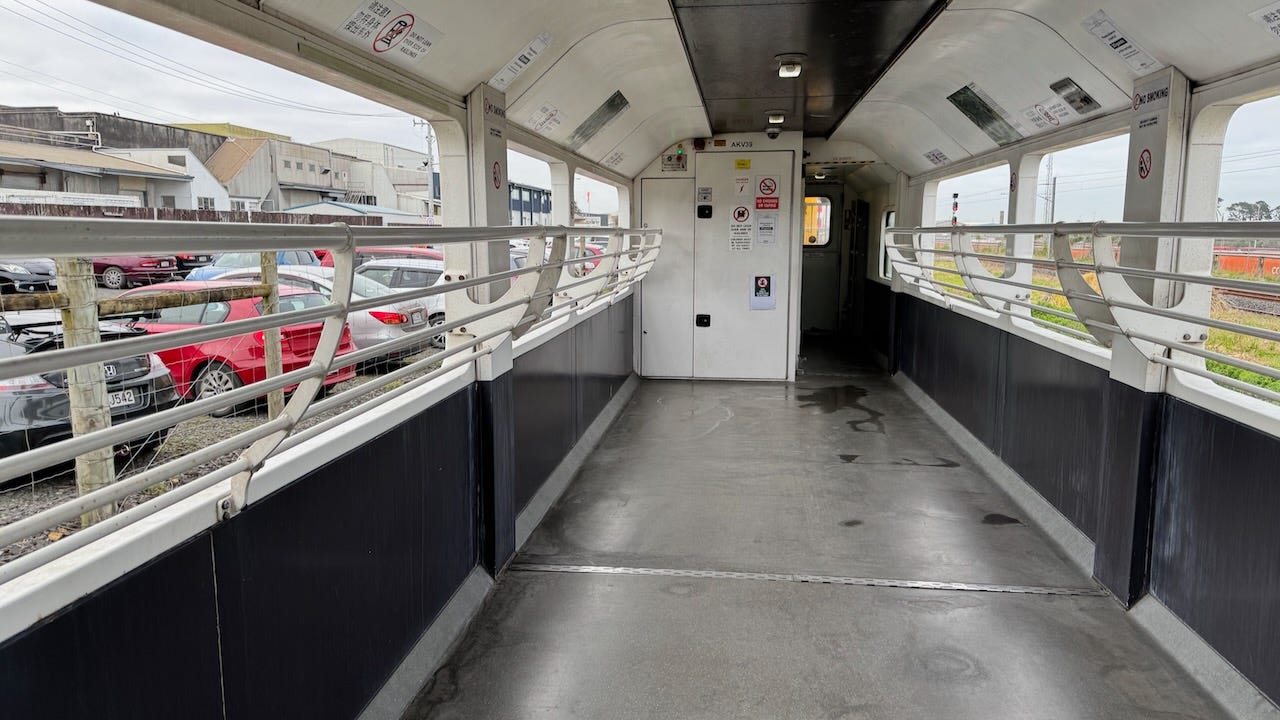
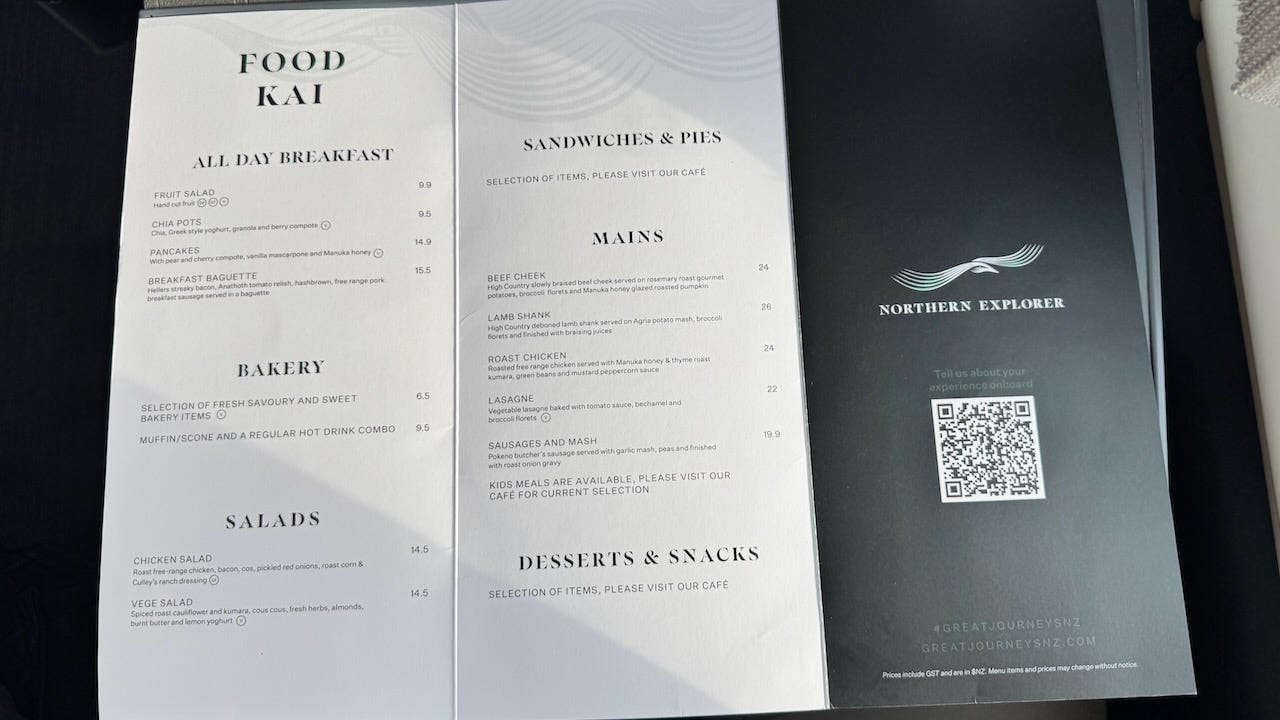
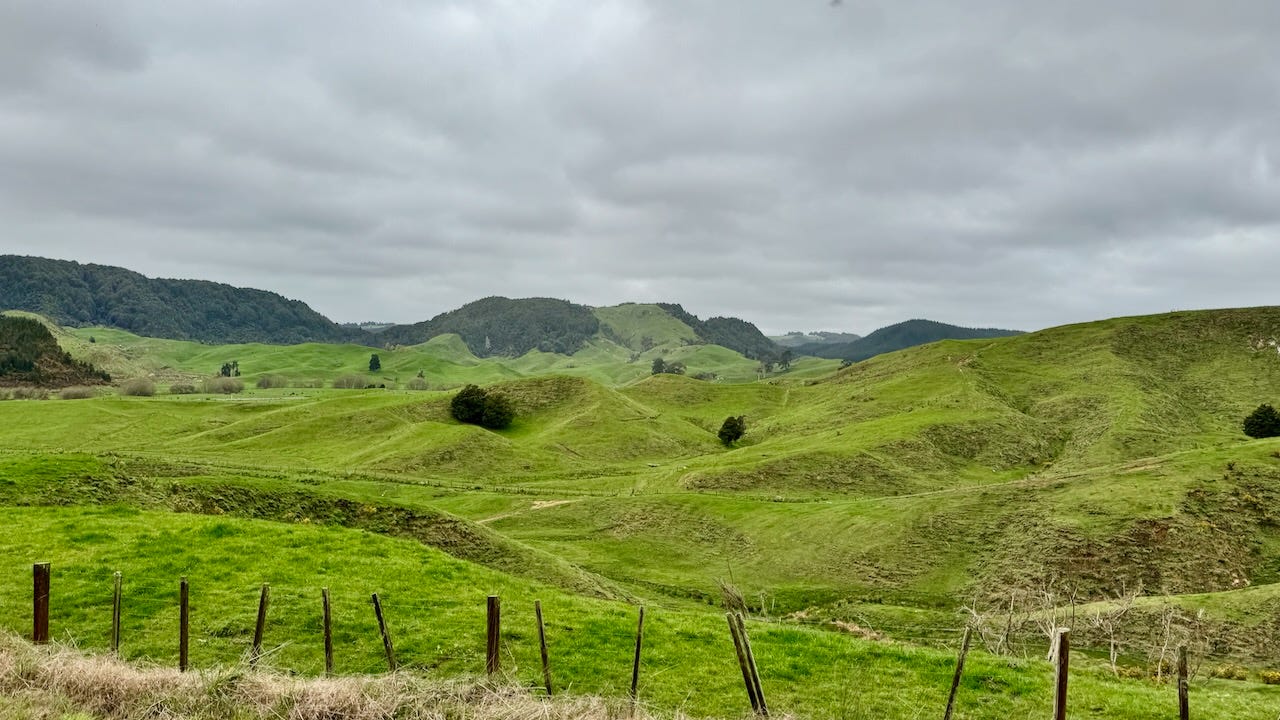
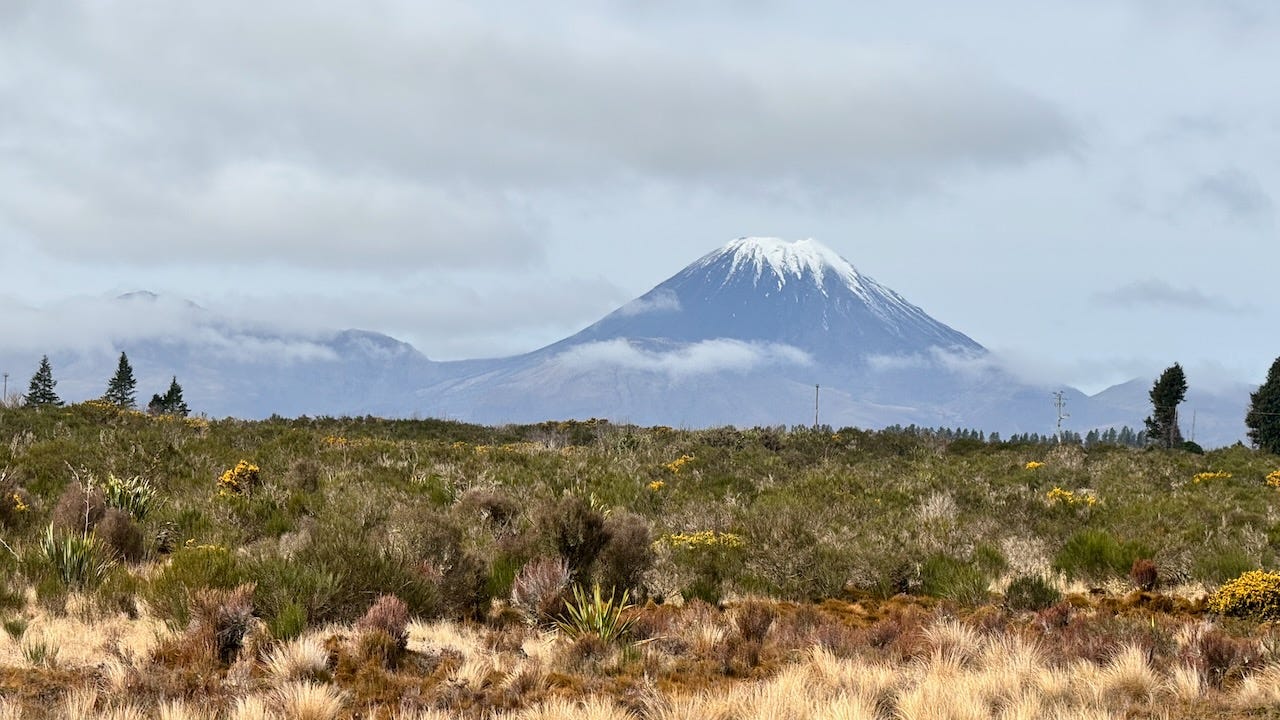
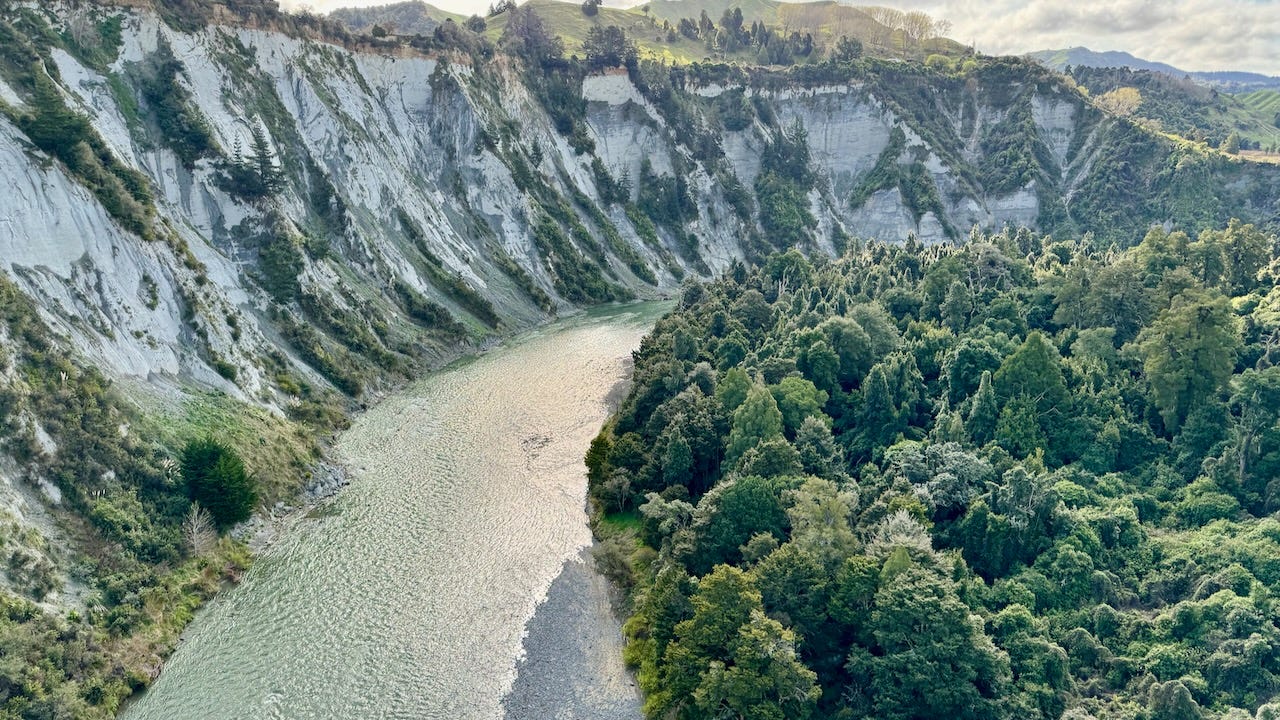

Thank you Lloyd, what a lovely description. As a long time fan of both you and Seat61, I have just moved New Zealand higher up my list of places to visit. I am sure the speech was or will be brilliant and I look forward to the insights and inspiration you will bring us from this new audience
" I flew all the way from Toronto to Auckland"
I don't think anyone of consequence holds it against you. It's one hell of a swim!